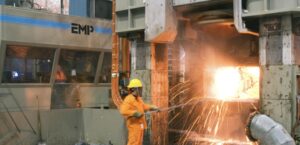The Complete Manufacturers Guide to ERP
The ERP landscape is evolving rapidly for today’s manufacturers. To keep up with changes in security, compliance, industry regulation, and customer demand, it’s important to have a tech stack that evolves in functionality and scales with your business. Our Complete Manufacturers Guide to ERP is a great resource to get you started in identifying critical gaps within your current ERP software, gathering business requirements, and building a plan of action to explore and implement the latest ERP technology.
In this guide, we provide resources, like:
- A complimentary ERP consultation with a team of Infor CloudSuite Industrial experts
- Core benefits of going cloud
- Needs analysis for Manufacturing
- Free Downloadable ERP project planning template (Excel)
- A printable ERP requirements checklist




